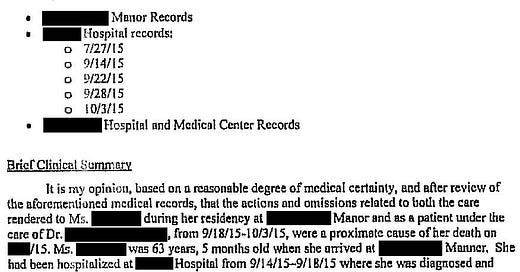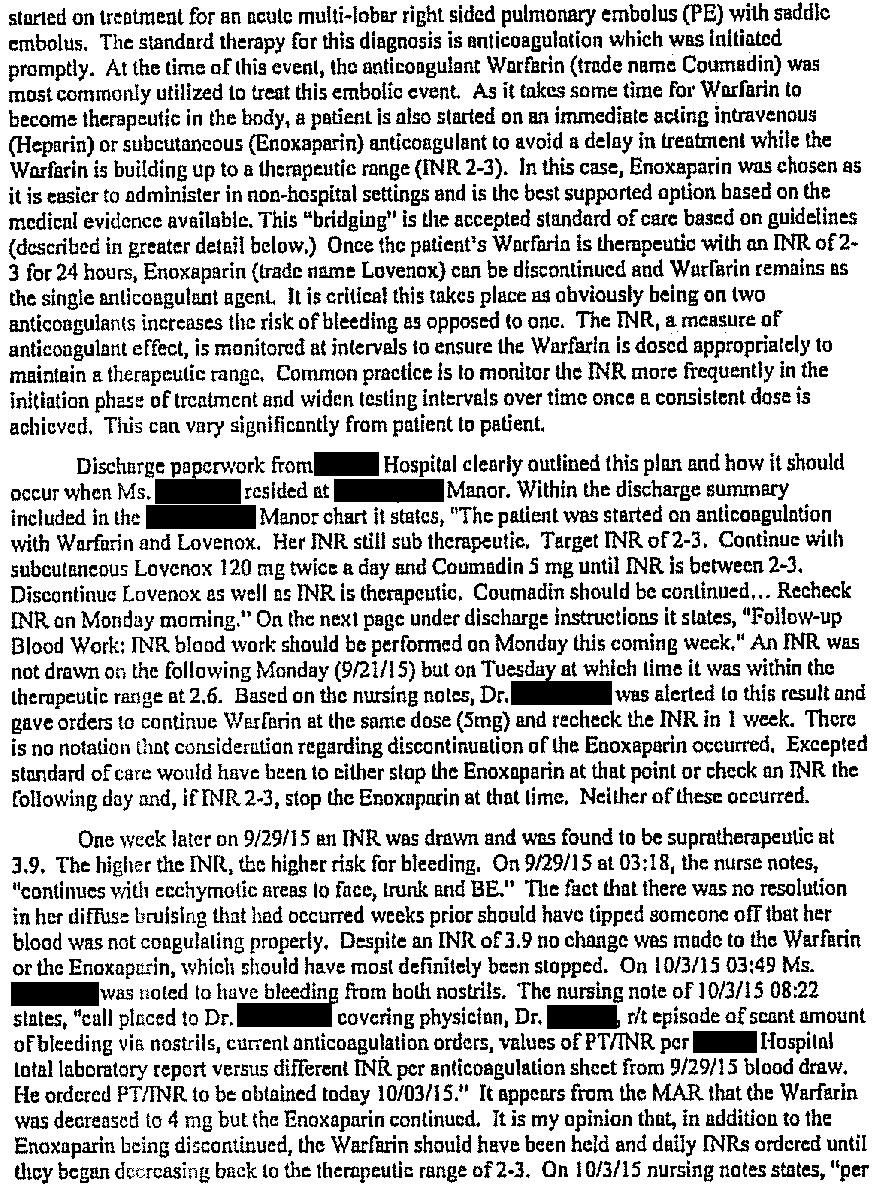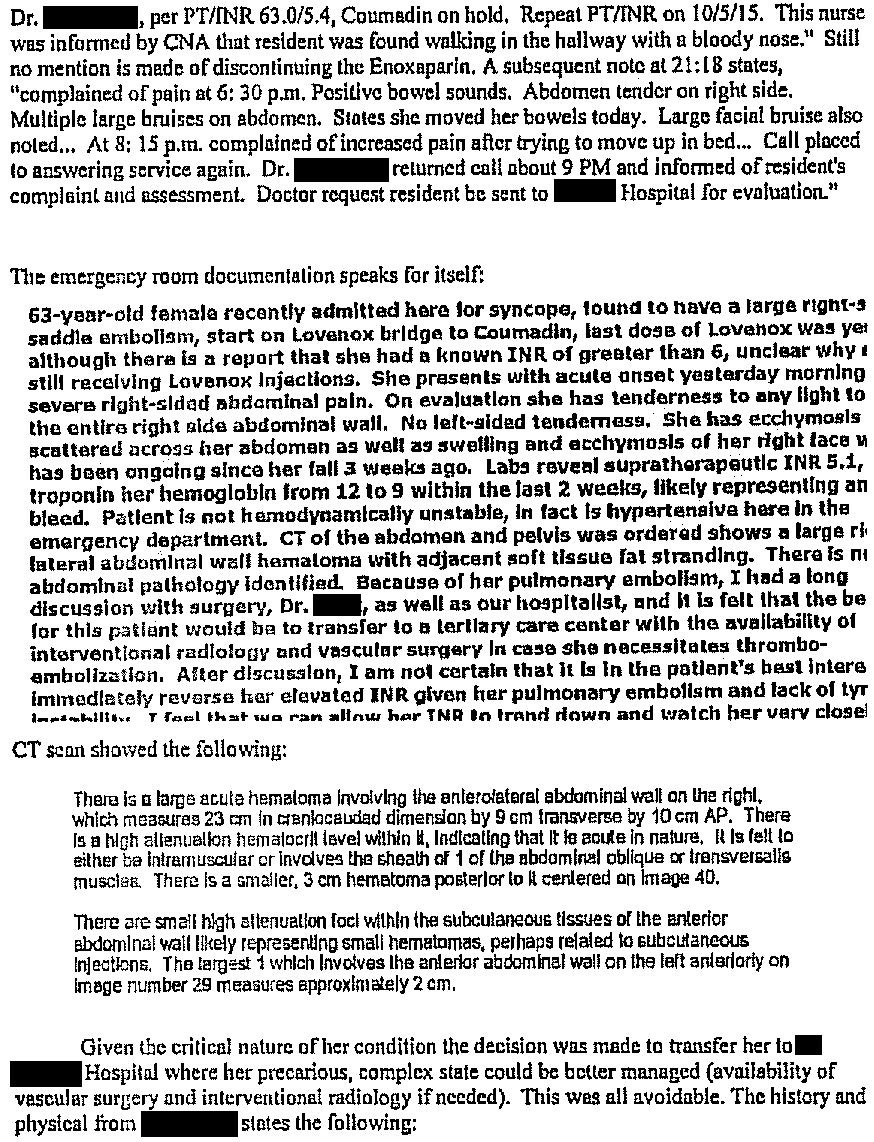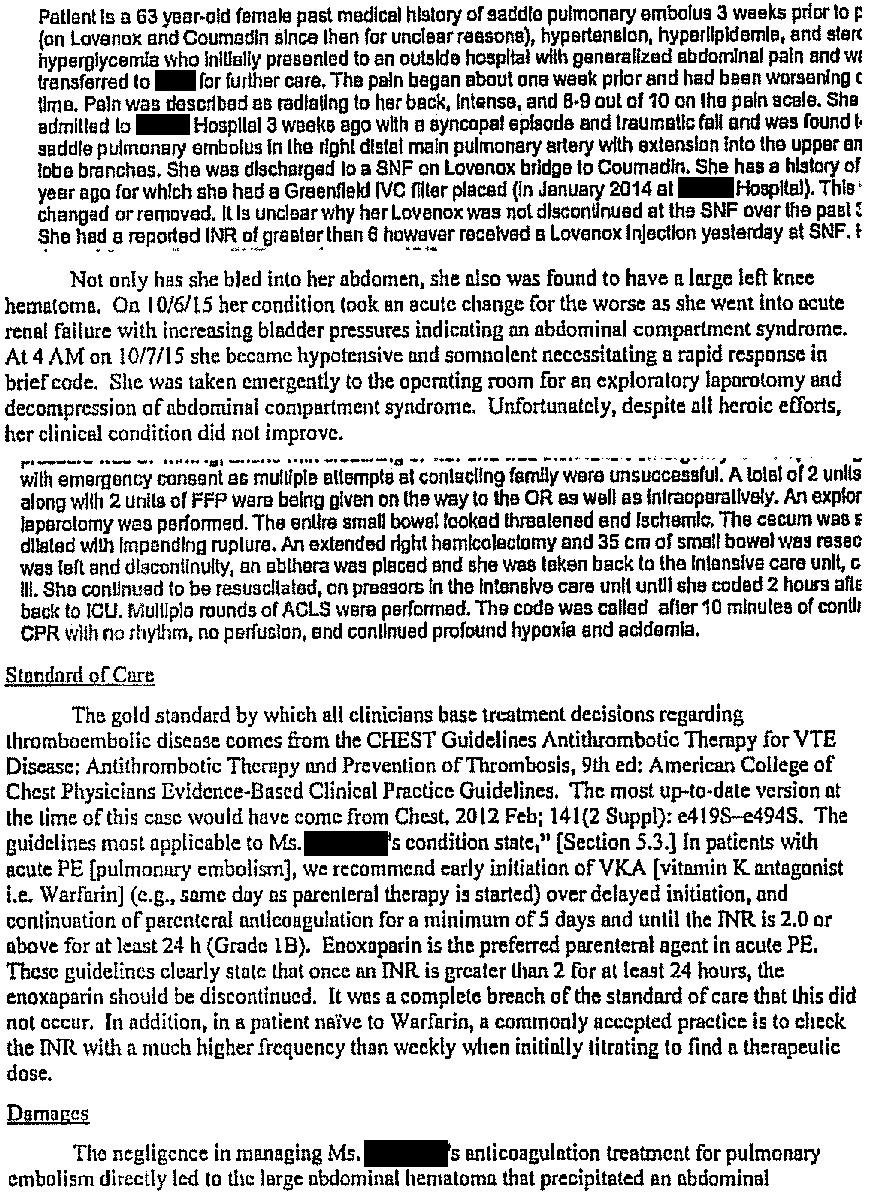A 63-year-old woman presented to the ED after a syncopal episode.
Her medical history was notable for a previous pulmonary embolism.
Her anticoagulation had been discontinued but she still had an IVC filter.
A CT scan confirmed a saddle PE.
She was hemodynamically stable and was given enoxaparin.
The patient had an uneventful inpatient course.
Warfarin was initiated.
Several days later she was discharged to a SNF.
Over the next 2 weeks she continued to receive enoxaparin and warfarin.
Her INR rose as high as 5.4.
The doctor ordered her warfarin held, but she kept receiving enoxaparin.
Nursing staff noted extensive abdominal bruising and mild nose bleeds.
She developed severe abdominal pain and was taken back to the ED.
A CT scan revealed a large abdominal wall hematoma (23cm x 10cm x 9cm).
She was transferred to a tertiary care facility.
Shortly thereafter she became very hypotensive, bladder pressures rose dramatically, and she was taken for an ex lap.
35cm of ischemic small bowel were resected and a right hemicolectomy was also performed.
She arrived to the ICU in critical condition, coded 2 hours later, and died.
Join 7800+ doctors and attorneys on the email list.
You won’t find these cases anywhere else.
Her family contacted an attorney and a lawsuit was filed.
The excerpts from the medical record are shown exactly as submitted to the court, despite some of the text being cropped too closely.
The defense did not submit their own expert opinion.
The lawsuit was rapidly settled for a confidential amount.
Improve your medicolegal expertise and stand out among your peers.
Pick up a subscription today to get a new case every week.
MedMalReviewer Analysis:
I suspect that the SNF doctor did not realize the patient was still being given enoxaparin. He eventually did reduce the warfarin dose and then hold it, demonstrating that he was at least paying some attention. However, he did not take the time to realize that she was still receiving enoxaparin, nor did the nurse (who was giving her the injections every day) raise this issue.
Reaching a settlement to avoid trial is probably the right thing to do. It would be quite difficult to mount an effective defense. There was a clear error that a jury of lay people will easily understand.
We’ve covered a similar case previously. Anticoagulation and the associated bleeding complications are a common source of lawsuits.









